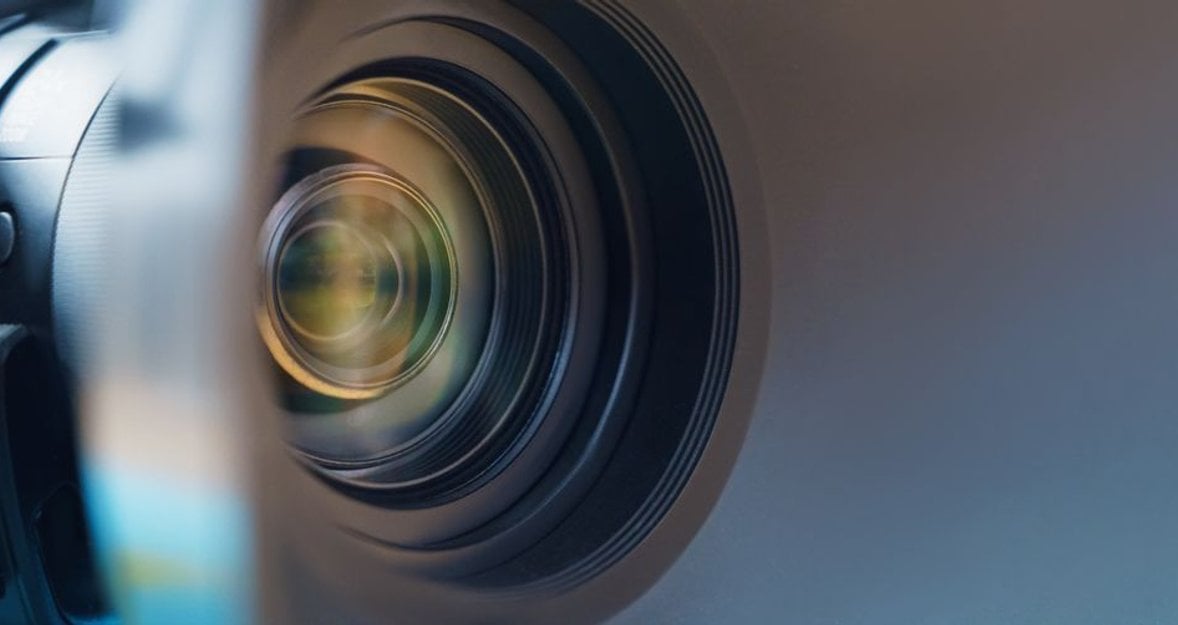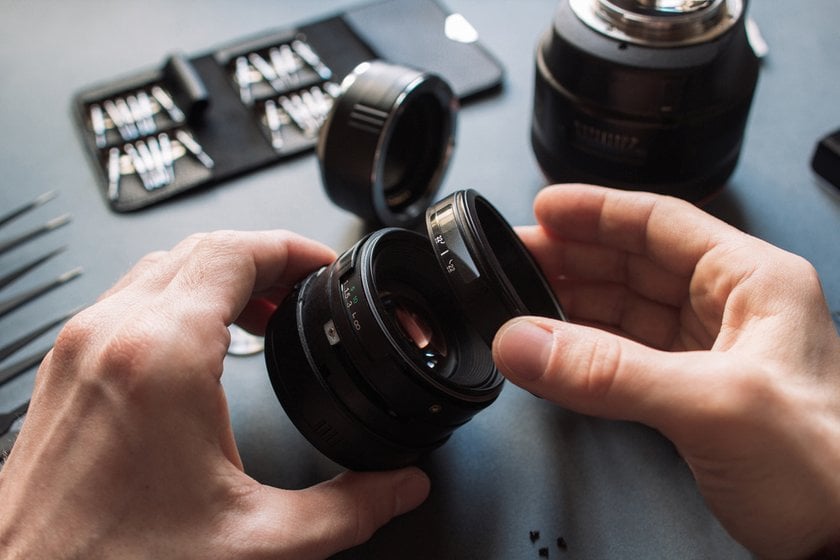Exploring Interchangeability Between Canon and Nikon Lenses
November 29, 2023

Are camera lenses interchangeable across different brands and models? Learn the answer and key factors to know about camera lens compatibility.
Have you ever asked yourself, "Do all lenses fit all cameras?” This is valuable for anyone interested in photography, regardless of whether a beginner or a professional photographer. Sometimes, certain lenses are compatible with some cameras, and other times, they are not. How does this affect your outcome? So, if you have been asking yourself how to select the appropriate lens, then you are in the right forum.
It becomes possible to install lenses on a particular photographic apparatus without adapters containing optical elements while retaining the possibility of focusing on objects at an unlimited distance. Here, we will name several characteristics of lenses and cameras tightly connected with the possibility of applying ‘non-native’ optics. Are Canon and Nikon lenses compatible? If you simply practice with different brands of lenses, you can find the options for all of life’s photos.
Camera Lens Compatibility Basics

System cameras, DSLRs, and mirrorless cameras can change optics. Nota Bene: it allows you to find the right lens for your needs. Advanced photographers usually have options for all occasions in their arsenal.
Lens Mounts and Brands
How do I know what lens fits my camera? The lens mount, or the camera into which the optic is put, determines this. Distinct photographic apparatus brands utilize various mounts, which affect zoom compatibility. Canon uses the EF mount, Nikon the F-mount, and Sony the E-mount. These adapters decide what kind of lens will suit your camera. If you use a Canon DSLR, for example, you will usually require an EF-mount lens. Before purchase, always verify that the lens mount is compatible with your camera.
Can you use different brand lenses on a camera? This is where adapters come in. Adapters serve as connectors between mismatched mounts, allowing you to use lenses with cameras that they would not ordinarily fit.
Designation of the most popular camera models

Adapters and Limitations
What if you have a lens that you want to use on another brand? Camera and lens compatibility attachments come in handy. They fit between the camera tool and the lens, connecting the types of mounts.
Adapters can limit lens features, such as slower autofocus or the need for manual adjustments. The fit is additionally less secure than with native lenses. While adapters expand your options, they also come with trade-offs. Perception lens mounts and adapter compatibility will check the best performance for your setup.
How to Know If a Lens Is Compatible With a Camera

When choosing a lens for your camera, contemplate what you want to photograph and what size it is. Every lens is good for something different, whether you're taking wide landscapes or close-up portraits. Your budget plays a huge role in this decision. How to know if a lens is compatible with your camera:
Check the type of lens mount. Assure the lens mount is the right one for your camera. For example, Canon DSLRs require EF lenses, while Nikon DSLRs use F-mount. This ensures a secure fit and reliable performance.
Choose based on your photography style. If you like to capture sweeping views, go for wide-angle lenses. Lenses with a wide aperture, like f/1.4 or f/1.8, are great for blurred backgrounds. If you want to take close-ups, a macro lens is the best option.
Don't forget to factor in your budget. Set a price range. Older lenses can be just as good, but they're often cheaper. Within your budget, find the best deal.
Specialized Photography Needs. If you shoot fast action, like sports, look for lenses with fast autofocus and long focal lengths to freeze the moment. Our previous post on "The Best Camera Lens for Sports" highlighted lenses with fast autofocus and long focal lengths.
Try before you buy. Rent or test lenses from camera stores to see how they work with your camera. This way, you validate you've chosen the right tool for the job.
Read reviews and get recommendations. Ask other photographers for advice and check online reviews. Personal experiences help you make an informed choice.
Choosing the right lens means finding the right balance between compatibility, budget, and photography goals. By doing this, you'll be able to find a lens that improves your photography.
Do All Canon Cameras Use the Same Lenses
Are DSLR lenses compatible with mirrorless cameras? Check this out if you're using a Canon camera. First, it depends on the type of camera.

This is for Canon DSLR. Canon's EF lenses are designed for their DSLR shooters, which use a mirror system. These lenses work perfectly with all Canon DSLRs.
For Canon Mirrorless Cameras. Do all Canon cameras use the same lenses? Canon presently employs RF lenses on their mirrorless camcorders. The lenses are specifically designed for these recorders. Unlike EF lenses, RF lenses are intended particularly for use with mirrorless cameras and cannot be utilized with DSLRs.
Using Lenses Across Systems. If you own a DSLR and a mirrorless camera, you can use an adapter to use EF lenses on a mirrorless camera. They can change between systems whenever they want without having to purchase new lenses to use with the new system.
Important Note. EF lenses can be attached to mirrorless cameras through adapters, but the case is the opposite for RF lenses — they cannot be affixed to DSLRs.
Lenses that are manufactured by the Canon company cannot fit in all these cameras. While EF lenses are entry-level lenses for DSLRs and are perfectly compatible with them, RF lenses are lenses specifically for mirrorless models. EF lenses can be mounted with an adapter on mirrorless systems but can not be mounted on DSLR systems with RF lenses.
Exploring Interchangeability Between Canon and Nikon Lenses
We have studied Canon vs Nikon lenses. The question arises: "Are Canon and Nikon lenses interchangeable?" This is relevant for photographers with equipment from both brands or considering switching to another manufacturer.
The short answer is no. Canon and Nikon lenses are not directly compatible because of how they are designed. Just like other electrical plugs don't fit into all sockets, Canon lenses are created to fit Canon cameras. Here's a closer look at the reasons:
There are different types of lens mounts. Canon employs EF and RF mounts, while Nikon uses F and Z. These systems differ in geometry and dimensions, and therefore, lenses cannot be placed directly on recorders of the other type.
Electronic Incompatibility. Today's corrective lenses employ electrical connections with the camera body for focusing, aperture operation, and stabilization. Certainly, it is because Canon and Nikon lenses are made and would best fit perfectly with the respective brands. Using a lens from one brand in a camera of another brand does not function correctly.
Using adapters can help with this. Although there are optical glass adapters to mount Nikon lenses on Canon, or vice versa, there are drawbacks. For instance, autofocus may get slower or may not even work. Moreover, the image quality obtained is not as good as that of a lens designed for a certain camera. It is important to note that some features, such as image stabilization or the electronic aperture function, may not function at all.
However, if you are a brand loyalist, there’s no place for instincts; one must stick with native lenses for optimum performance. In order to prevent such a mistake, always consult a compatibility chart before getting the lenses.
Enhancing Your Photos with Luminar Neo
If your lens isn't great, use modern photo editing to make your images look much better. Luminar Neo is a great example of powerful software that uses AI to help photographers get amazing results.
AI Features for Simplified Editing
Luminar Neo has some AI tools that are easy to use. They can make complex adjustments to your image. It can automatically detect the sky in your image and enhance its color, detail, and tone. You can replace a dull sky with a vibrant one, add realistic clouds, or adjust the overall atmosphere of the photo seamlessly. It has one slider for multiple functions, like exposure, contrast, saturation, and color balance.
Luminar Neo intelligently analyses your image to provide optimal settings, saving time and delivering professional results without manual adjustments. Furthermore, it balances light and shadows, correcting areas too dark or bright for a better-balanced look. It's super easy to use — perfect for beginners and pros alike to enhance photo quality.
Focus Stacking for Sharp Images
Close-up photography often struggles with depth-of-field issues, where parts of the subject appear blurry. Luminar Neo's Focus Stacking solves this by combining images taken at different focus distances. Every part of the subject, from the foreground to the background, appears sharp and well-defined in the final image.
The process is automated, making it easy for users to blend photos without technical expertise. Perfect for close-ups of intricate details like jewelry, flowers, or textures, where precision is key. Luminar Neo, image stacking software, helps you solve this with Focus Stacking.
Summary
Camera lenses cannot be generalized or are not as simple as the other. Each brand of camcorder uses a different lens fitting, and one make of lens will not fit on a camera body without some form of adaptation. Therefore, before you pull the trigger, take a look at this list of lenses and their compatibility with the camera manufacturers.
Thanks to Luminar Neo, you will not waste your time and graphic editor boring hours in Photoshop. With the help of AI and other features (as you can guess from the titles ), you can demonstrate the availability of beautiful hair and skin to clients, colleagues, or friends much sooner.
FAQ
Does a camera lens compatibility checker exist?
One way to easily tell which lenses fit your camcorder is to refer to the engraving located on the lens mount of your EOS recorder's external frontal part. Well, you just twist the lens like this, in this direction [pointing clock-wise], make the ‘click,’ and you push this opposite to the camera. Four forms of lens mounts come with Canon cameras.
Can you use different brand lenses on a camera?
Lenses are mostly attached to a specific brand, and each camera producer has its own unique mounts. This means that unlike with lenses, one brand’s lens will not fit a camcorder of another brand without using adapters. While a lot of third-party lenses proudly declare which original equipment manufacturer the lens is compatible with, it is not enough to know the brand. Not all the cameras of the same brand are compatible with the same kind of mounts. In order to quickly determine if your lens would fit your camera, you need to take a look at your camera lens mount. Then, choose the lens mount of the particular lens that interests you in the process. The lens mount is presented by the letters, for instance, EF, EF-S, M, R, and so on.
Are DSLR lenses compatible with mirrorless cameras?
There are mirrorless recorders you can use with DSLR lenses. An adapter links the DSLR lens mount to the mirrorless camera mount. Digital functions, including autofocus, may or may not function optimally. For native mirrorless lenses, they tend to outcompete their competitors in speed and image performance. There are companies that make holders that are compatible with the devices to enhance compatibility. A common caution for photography enthusiasts is to double-check lens and adapter compatibility before use.






